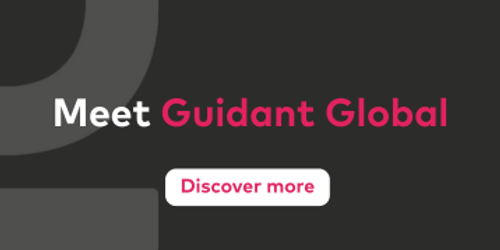
Skills shortages: the perfect opportunity to build a more diverse workforce
Ongoing skills shortages, along with a desire to build more diverse workforces, are arguably the two of the biggest challenges facing in-house talent acquisition teams today.
According to the Future Workplace 2021 HR Sentiment Survey, more than half of leaders say talent acquisition is a top strategic priority this year, while 67% cite diversity, equality and inclusion (DE&I) as a main concern. Meanwhile, Mercer’s latest Global Talent Trends report paints a similar picture, with DE&I analytics and ‘defining future workforce needs’ highlighted as top priorities.
However, while these distinct issues are often tackled separately, taking a joined-up approach could hold the key to success in both areas.
Acute skills shortages
It is no secret that employers across the UK are grappling with unprecedented talent shortages. Official figures released in August 2021 show that unfilled job vacancies have now topped one million for the first time ever. In July alone, the number of permanent vacancies advertised by recruitment agencies rose by 43%, while contract roles increased by 53%, compared with the previous year, according to data released by the Association of Professional Staffing Companies.
Beyond these headline numbers, skills gaps are having a tangible impact on both our everyday lives and the wider UK economy. Small businesses are limiting operations because of staff shortages, hospitality venues are restricting opening hours, and a shortfall of HGV drivers is leaving gaps on supermarket shelves.
The reasons behind this evident lack of candidates are, unsurprisingly, complex. Insufficient talent pipelines, an exodus of EU workers post-Brexit, and the fact that many professionals retrained or switched sectors to find work during the pandemic have all helped to contribute to the current situation.
But many businesses are also struggling to source staff because they are fishing for talent in the same small pond as their competitors. There simply aren’t enough people to go around. In order to do things in a better way, organisations must explore the potential of untapped talent pools.
Untapped talent pools
While businesses across the UK scramble for talent in skills-scarce silos, there are entire groups of people who, for one reason or another, completely rule out certain career paths or find it difficult to access employment altogether. Archaic recruitment processes, outdated job specs, and even the channels used to communicate opportunities can all act as a barrier to applicants.
Specific sectors can unintentionally deter jobseekers depending on their gender, ethnicity, or sexual orientation. Meanwhile, disabled talent, former military personnel, ex-offenders, individuals returning to work after a career break, older professionals, and care leavers are just some of the groups who statistically find it more challenging to secure a role. What’s more, the individuals most likely to be inadvertently sidelined by legacy hiring practices are also most likely to be able to bring new and valuable skills and perspectives to teams.
Engaging a diverse workforce
Actively seeking out individuals from these underrepresented groups will not only have a positive impact on the volume of jobseekers available, but also on the breadth, depth, and quality of your talent pools.
There is a wealth of evidence that supports the fact that companies with diverse workforces outperform the competition. Make no mistake, even in times when talent is plentiful, DE&I initiatives aren’t just ‘nice to have’ – they have a positive and measurable impact on a business’s bottom line.
Diversity breeds innovation. People with a wide range of backgrounds, skills, and experiences will all approach challenges in dynamic ways, see different opportunities, and bring unique insights. Plus, only companies with a diverse range of talent can honestly claim to be truly representative of the customers and communities they serve.
However, in order to tap into new or underutilised talent pools, engage with a wide range of jobseekers, and take advantage of the benefits that diverse workforces bring, talent acquisition teams and hiring managers must identify why they are not reaching these people already. Unnecessary role requirements, your ability to upskill and retrain applicants, use of language or imagery, and job ad placement all need to be reviewed and reconsidered. Get it right, and your reward will be access to a whole new world of quality candidates.
An experienced MSP or RPO provider is perfectly placed to support businesses in exploring and engaging with the whole array of talent available as they reach beyond their conventional ‘go to’ candidate personas - particularly when hiring in volume.
Lessons from The Very Group
The Very Group is the parent company of big-name brands Littlewoods and Very. During their peak recruiting period, which runs from late August to the end of November each year, the business requires additional workers to cope with the demands of Black Friday, Christmas, and the January sales.
In 2017, when the company was known as Shop Direct, Guidant was responsible for its ‘All we need is you!’ recruitment campaign, which was centred on candidate personas. We researched our previous peak workforce to establish four key target audiences. Three of these reflected existing worker trends: Daytime Dave, Nightshift Nick, and Weekend Wasim. The fourth persona, Female Farah, was designed to target a potential gap in applicant demographics and increase the number of female workers through challenging stereotype perceptions of a warehouse environment – and, in turn, increase diversity.
Both the design and messaging of job adverts were tailored to each persona rather than taking a one-size-fits-all approach. Communications included persona-focussed imagery and targeted social media posts. As a result, we filled 1,500 roles – at a total cost of just £10 per head. What’s more, 69% of all temporary female hires at Shop Direct in 2017 were placed in the three months our campaign was live. The project went on to win the 'Most Effective Recruitment Marketing Campaign' category at the 2018 Recruiter Awards.
Seize the opportunity to build a diverse workforce
By doing things in a better way, we are able to reach previously overlooked segments of the workforce. Today, we work closely with our clients to make the best use of Apprenticeship Levy funds to create programmes that give individuals from all walks of life equal opportunities. At the other end of the spectrum, we partner with the Fuller Working Lives team to support longer careers.
We are the only recruitment provider that has achieved a Level 3 Disability Confident Leader status and are founding members of the Recruitment Industry Disability Initiative (RIDI). We have also pledged to ban the box on asking for criminal convictions in the early stages of the application process, so that everyone has an equal opportunity to find work.
We know that while the skills shortages employers are facing are less than ideal, they provide a perfect opportunity to build a more diverse workforce. By joining the dots, and seeking help from the experts, talent acquisition professionals can take a fresh look at recruitment practices and build better processes to boost not only applications, but also inclusion.
Need a workforce diversity and inclusion partner?
Thanks to our award-winning inclusive recruitment practices and network of diversity-specialist recruiters, our customers are building workforces and workplaces where everyone can thrive. Access our D&I guide here, and get in touch to learn how we can support you.
Australia
Suite 1403, Level 14
309 Kent Street
Sydney
NSW 2000
United Kingdom
United States
27777 Franklin Road
Suite 600
Southfield
Michigan 48034



